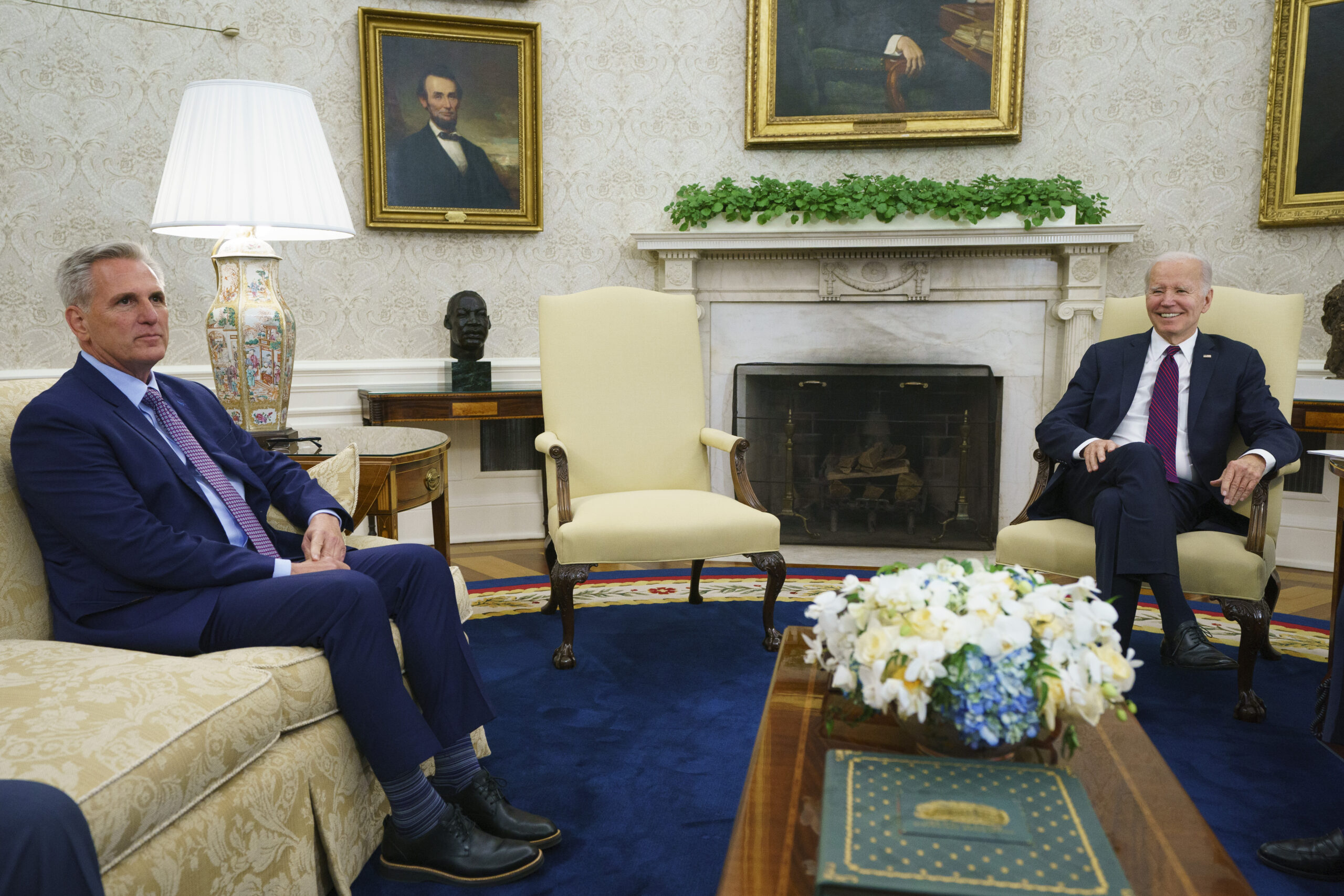With only 17 days left until a potential government default on its over $31 trillion debt, negotiators from the House, Senate, and White House are scrambling to reach an agreement on raising the debt ceiling. However, stark partisan differences have stymied their efforts thus far.
House Speaker Kevin McCarthy is pushing for an agreement on raising the debt limit while slashing federal spending, but a deal has yet to be reached.
Negotiators from the House, Senate, and White House met over the weekend and are said to be reconvening soon. Their key discussion points include budget caps, COVID funding, permitting reform, and work requirements for federal aid programs.
Republicans are calling for budget caps of up to 10 years, while Democrats favor a two-year approach. Another contentious issue is the utilization of roughly $60 billion in unspent COVID relief money. Republicans want the funds rescinded, while Democrats are open to the possibility of redirecting a portion of the funds for other uses.
Treasury Secretary Janet Yellen is expected to release an updated default deadline, previously estimated as June 1. So as the clock ticks down, will the negotiators manage to strike a bipartisan deal to avert the financial catastrophe?
Click play to listen to the report from AURN White House Correspondent Ebony McMorris. For more news, follow @E_N_McMorris & @aurnonline.



